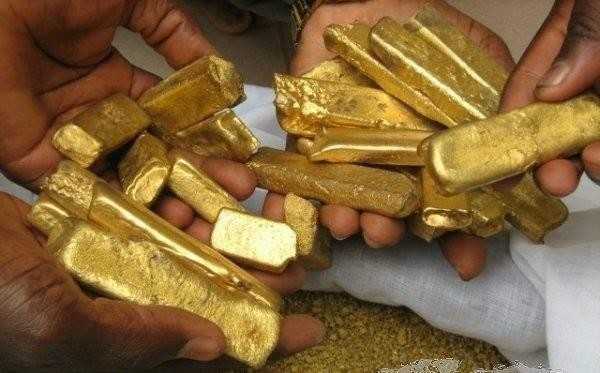GOASO, Sept 13 (The African Portal) – Ghana’s gold mining sector continues to make global headlines as a key driver of the nation’s economy. Yet, for communities that host these mines, the story is less golden. Behind the billions earned, there are broken promises, violent clashes, health risks, and an ever-widening trust gap between companies, government, and the people.
The consequences of inaction are dire: more unrest, more deaths, and deeper scars on Ghana’s future.
The Obuasi Clash: Blood on Gold
On January 18, 2025, Obuasi was thrown into chaos when soldiers at the Obuasi Gold Mine opened fire, killing between seven and nine people.
While the army claimed the victims were illegal miners, the Ghana National Association of Small-Scale Miners insisted they were unarmed civilians. This tragic confrontation, widely condemned by rights groups, once again exposed the toxic relationship between mining companies, security forces, and local residents who feel alienated from the wealth beneath their soil.
Bibiani Relocation Blues: The Forgotten Voices of Old Town Residents
At Bibiani, Asante Gold is pressing forward with a US$325 million project to transform the mine into Africa’s next major gold district. Yet, three years after acquiring the mine, relocation promises for surrounding communities remain unfulfilled.
In the suburb of Old Town, residents live daily with dust clouds that choke their lungs, noise pollution from heavy machinery, and constant tremors from blasting that are damaging homes. Families fear for their health, safety, and future. For many, this is not development — it is destruction. And their cries remain unanswered.
Kenyasi: Wealth Amidst Broken Roads
In Ahafo’s Kenyasi township, the paradox is glaring. Despite being at the heart of a gold belt that fills Ghana’s coffers, residents still navigate poor roads that cripple local trade, increase transportation costs, and fuel post-harvest losses for farmers.
For a town that feeds the mining industry, the absence of visible development feels like betrayal.
Manso Mpatuam: Death in Protest
Just days ago, Manso Mpatuam in the Ashanti Region witnessed another violent episode. A clash between residents and Asanko Mine left an Assembly Member dead and two others injured.
The chilling event underscores the growing impatience of host communities who no longer trust dialogue alone.
A Call for Equity and Accountability
Mining royalties, if managed wisely, could transform host towns into thriving hubs of opportunity. Instead, they are often swallowed by bureaucracy or diverted elsewhere.
Why should the gold refinery — a symbol of Ghana’s mineral wealth — be built in Accra, far from Western, Ahafo, Ashanti, and Eastern regions where the gold actually comes from? Chiefs, youth leaders, and civil society groups are right to call this imbalance not just unfair, but deeply unjust.
The time for rhetoric is over. Ghana must demand that mining companies, in partnership with the state, prioritize host communities through transparent investments in health, education, infrastructure, and livelihoods.
Without this shift, violent clashes will only multiply, deepening wounds and tarnishing Ghana’s international reputation as a stable mining hub.
The Way Forward
For the youth, mining must mean more than joblessness and danger.
For chiefs, mines must be instruments of progress, not conflict.
For journalists, these must remain stories of accountability, not forgotten tragedies.
And for the international community, Ghana must stand as proof that resource wealth can uplift, not impoverish.
If gold is to shine for all, then equity and accountability must be at the heart of the industry. Mining must become a blessing — not a curse.
The writer based in the Ahafo region is a member of the Ghana Journalists Association.






